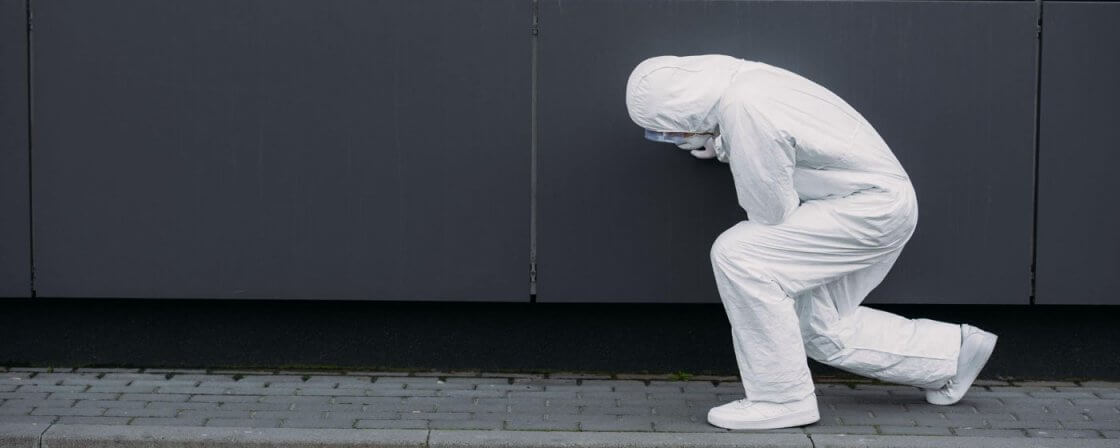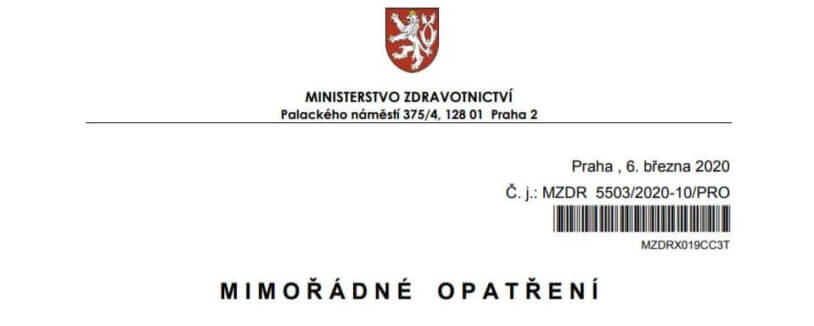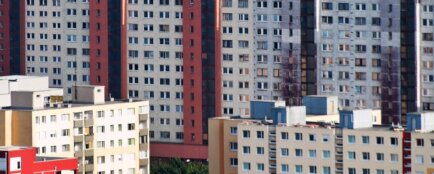From a legal point of view, a viral epidemic is a classic example of force majeure (vis maior), a fundamentally unpredictable phenomenon over which no one has control. Although it is precisely to ‘control’ and contain the epidemic that various legal instruments are intended to help.
It is, in fact, a natural disaster which, given the speed with which the SARS-CoV-2 coronavirus is spreading, is already having far-reaching consequences in the areas of security, economy and culture. Unwittingly, this epidemic will touch everyone’s life, including legally.
What rights does the ordinary person have in this unfortunate context?
What rights does an employee have? The employer and the entrepreneur on the one hand, and what rights or opportunities does the state have on the other? The government? The Ministry of Health?
The epidemic may affect a variety of rights and obligations. Most serious are the possible restrictions on basic human rights in the context of combating the spreading element. These include the possibility of expropriation (of respirators, not ventilators), restrictions on freedom of movement and assembly, or the closure of pubs and bars.
The situation affects both employees and employers who, in certain circumstances, can send their people home for a time and pay them only part of their wages. Last but not least, the crisis also affects relations between businesses (including lawyers) and consumers. There may be an advantage for those who provide their services online (as the Accessible Lawyer does for legal services), as the coronavirus does not spread over the internet.
Restricting individuals
TheDepartment of Health is the most important government body for the protection of public health. As ministries are so-called monocratic, in reality the Minister of Health (not the Prime Minister) makes decisions directly in this area.
Thus, the Ministry of Health (or the Minister) can order various measures during an epidemic. The first such measure was, for example, the imposition of a quarantine at the beginning of March 2020 on all permanent residents of the Czech Republic returning from Italy, where the epidemic was gaining momentum at the time. This is, of course, a serious interference with personal freedom, because a person under quarantine cannot go shopping or meet anyone.
TheMinistry of Health has issued a number of measures; two of the most important for everyday life are the restrictions on free movement within the country, as well as restrictions on the sale of goods and services.
The first major interference with daily life is the restriction of the free movement of persons within the territory of the Czech Republic. The Ministry has, in principle, banned any public outing that is not strictly necessary. It is, of course, possible to go to work, shopping and to the pharmacy, as well as to care for family members and loved ones, including providing for their needs. It is also possible to visit health and social service facilities.
Importantly, however, other instances of going out and moving around freely are limited to a few exceptions. If you volunteer or perhaps help elderly neighbours, the ban does not apply to your outdoor activities (of course, only to the extent of what you do). Freedom of movement is then provided for the exercise of occupations or other activities to ensure safety, public health and order or perhaps public transport.
Although there have already been media reports of the Police checking on “cottagers” and turning them back, there has been no restriction on travel to the countryside by the Department. However, in such cases it is important to exercise utmost caution and not expose oneself to unnecessary risks.
It is also no longer possible to gather in public with more than two people. There are also exceptions to this, for members of the same household, in the exercise of a profession or at funerals.
Currently, the retail sale of goods and services in the proozovars is prohibited. There are a number of exemptions to this general prohibition, which may gradually be expanded as the onset and progress of the epidemic is detected or, should the situation deteriorate further, narrowed. Exemptions thus apply, for example, to grocery stores (but they are currently obliged to provide customers with hand protection such as plastic gloves; they must also ensure that, for example, baked goods counters are not crowded – some stores have thus refrained from selling unwrapped baked goods altogether) and, of course, to pharmacies.
Gradually added exemptions include, for example, horticulture and floriculture, which were added to the list earlier, but also, more recently, locksmiths, servicing of household products and machinery, car washes and also activities relating to burials. Shops that sell more than one type of goods or provide different services are then subject to the Ministry’s measure on how much the sale of certain goods or services contributes to the overall activity of the establishment.
In addition to this restriction, there is also a ban on the public in restaurants and fast food outlets. Exceptions are allowed, for example, in cafeterias that do not serve the public and the sale of food off the premises – i.e., most often through a dispensing “window” or from the door of the establishment, where some restaurants have relocated their cash registers and sell food and drink to go. However, catering services in large shopping centres (over 5,000 m2 of total area) are completely prohibited.
The ban also applies to some other services, such as driving schools, self-service laundries and gambling and casino facilities. In addition, the provision of accommodation services is restricted (with a few exceptions).
Are you solving a similar problem?
Solutions Tailored for You
Our team of experienced attorneys will help you solve any legal issue. Within 24 hours we’ll evaluate your situation and suggest a step-by-step solution, including all costs. The price for this proposal is only CZK 690, and this is refunded to you when you order service from us.
I Need help
- When you order, you know what you will get and how much it will cost.
- We handle everything online or in person at one of our 6 offices.
- We handle 8 out of 10 requests within 2 working days.
- We have specialists for every field of law.
Emergencies
In the context of the epidemic, a state of emergency has also been declared. This is generally declared in the event of natural disasters, environmental or industrial accidents, accidents or other hazards that threaten life, health or property values or internal order and security to a significant extent. However, it was also declared, for example, after the hurricane in January 2007, when the government imposed a two-week ban on entering forests in designated counties and districts.
A state of emergency is normally declared by the Government of the Czech Republic, but can also be done by the Prime Minister personally, and the Government then either confirms or cancels it within 24 hours. The state of emergency was declared on 12 March and is valid for 30 days for now. It can then only be extended with the approval of the Chamber of Deputies. A milder equivalent, which can come into play after the state of emergency has passed, for example, and only for smaller areas, is the state of danger, which can be declared by the governor or the mayor of Prague.
During a state of emergency, the right to own property can be restricted (de facto, this may include, for example, the expropriation of respirators or masks, etc., but this is unlikely to happen), and the freedom of movement and residence in a defined area of the territory threatened or affected by the emergency can be restricted. The right to peacefully assemble in the defined area and the right to carry out business activities that would jeopardise the crisis measures being implemented or disrupt or prevent their implementation may also be restricted. A legal strike can also be ruled out.
Employee and employer
However, let us return to the actual measure and its immediate consequences for ordinary legal relations. What are the implications of the quarantine for employees and employers?
It is important whether the quarantine is justified or merely voluntary. If the employee has been ordered by a doctor to be quarantined or is subject to a Ministry of Health measure (as a returnee from abroad), this is a personal obstacle on the part of the employee. In fact, it is similar to being sick. In such a case, the employee will be entitled to a wage or salary replacement of 60 per cent of average earnings for the first 14 calendar days of the quarantine. This compensation will be paid to the employee by the employer. Should the employee’s quarantine or illness last longer, sick pay will be paid by the Czech Social Security Administration from the 15th calendar day.
However, in recent days, the so-called home office is often used instead of quarantine. This is actually a voluntary quarantine to help protect other employees. In this case, the employee agrees with the employer to work normally but from home (this is common in certain industries). This does not reduce his income.
In a situation where the type of work does not allow such a solution, or where the employee would not agree to work from home, the employer has the option of temporarily not assigning work to the employee and not allowing him or her to enter his or her premises. However, in such a case, the employee shall be entitled to a wage or salary replacement equal to the average earnings.
If the epidemic continues and turns, for example, into a pandemic, it is possible to expect entire regions or parts of towns to be closed in the Czech Republic. In this case, it would then be the case that there would be obstacles on the part of the employer and the employees would again be entitled to wage or salary compensation equal to their average earnings.
The employer can then apply the ‘partial unemployment’ scheme to its employees in those cases where the virus restricts their activities and limits their sales or the demand for their goods or services. However, it must first reach an agreement with the trade union that operates there. It can then reduce the income of its employees to 60 per cent of average earnings. However, according to signals from practice, redundancies have already begun in the hotel industry, for example, and those on probation are unfortunately already packing their bags.
Relations between entrepreneurs and consumers
Last but not least, questions that are of interest (not only) to entrepreneurs need to be addressed. What about non-delivery of service due to the presence of a virus? Who is responsible for what?
According to the Civil Code, we can be excused from the obligation to compensate for damages or injury for breach of contract or other agreement if we prove that we were prevented from fulfilling the obligation by “an extraordinary, unforeseeable and insurmountable obstacle arising independently of our will.” This is undoubtedly the drastic spread of a virus. For example, a cabinetmaker who must enter quarantine cannot deliver a customized cabinet in time. If he did not deliberately bring about the disease or the risk of it, he does not have to pay the resulting damages and penalties.
A business could also invoke the right to negotiate a contract modification or ask the court to modify or cancel a contract in certain circumstances if the epidemic has caused a gross disadvantage to the affected party. For example, this is a situation where the hotel cannot get its obligations to the travel agent. However, each case must be dealt with individually and a causal link between the coronavirus and the breach of contract must actually be proven. It is therefore advisable to consult a lawyer. Moreover, the mere fact that performance has become more difficult does not absolve liability. Here one can mention the manifestations of a certain panic, when someone refuses to provide a service irrationally and can then even be fined.
Travel agents
The clients of travel agents are naturally interested in the possibility of cancelling trips to the most affected areas – this has become a necessity due to the current measures. Until recently, the general references to force majeure described above would have mattered. However, based on an EU directive, Czech law has recently introduced a provision that regulates the situation where the customer has the right to withdraw from the contract without having to pay a cancellation fee. This is a situation where there are unavoidable and extraordinary circumstances which have a major impact on the provision of the services included in the tour (or on the transport). This may include, for example, a military conflict, other serious security problems such as terrorism, significant risks to human health such as an outbreak of a serious disease at the travel destination, or natural disasters such as floods, earthquakes or weather conditions that make it impossible to reach the destination safely as agreed in the travel contract.
The right to compensation may be exercised subject to the following conditions – the existence of unavoidable and extraordinary circumstances and their significant impact on the provision of the tour or on the transport.
Important for the application of this section is that there are closed e.g. airports, museums, holiday resorts, etc. – in this case, according to the law, the customer would have the right to cancel the tour or withdraw from the contract and not pay the severance payment. If, on the other hand, there is a certain risk of virus infection at the place of the tour, but this would not mean closing public buildings and premises, the customer would not be able to take advantage of this option and would unfortunately be left with Black Peter.






